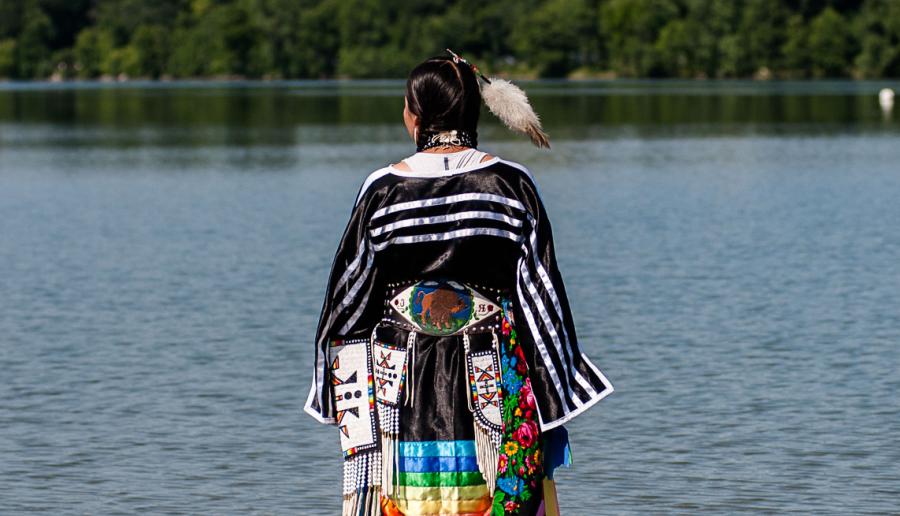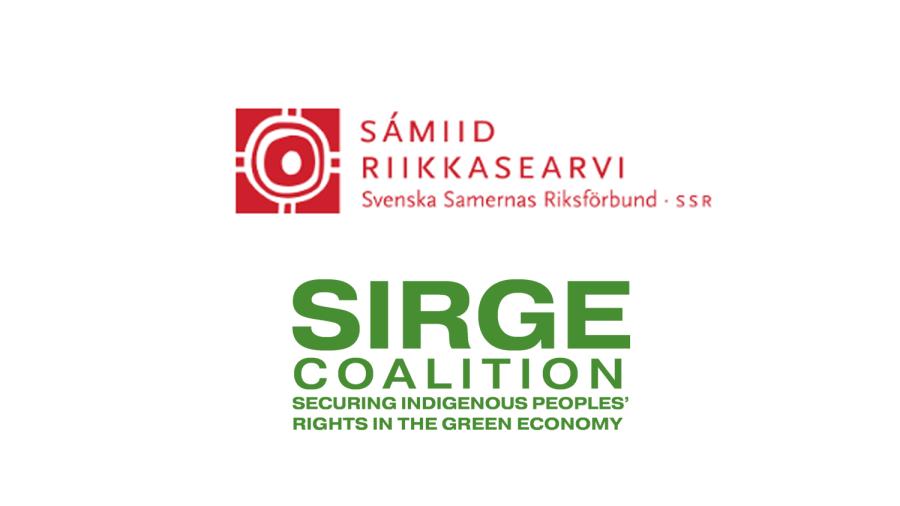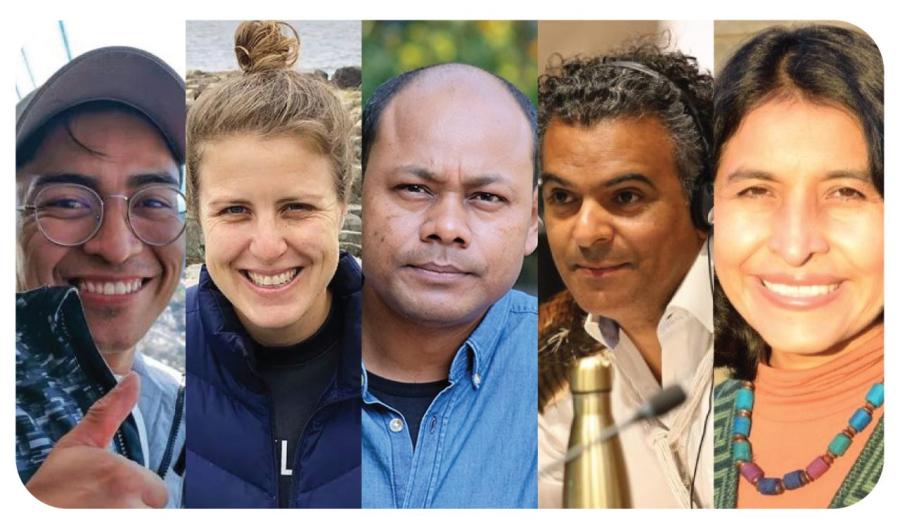
[Warning. This article mentions sexual violence]
Since October 4, 2021, Indigenous Q’eqchi community members in the municipality of El Estor, Izabal, in eastern Guatemala have been peacefully blockading a road to prevent ongoing activities of the Fenix Nickel Mine, currently owned by Swiss company Solway Group, operated by Guatemalan subsidiary Compania Guatemalteco de Niquel, with processing by subsidiary Pronico. On June 18, 2020, Guatemala’s highest court ordered the mine to close. The court found that the 2006 license under which it is currently operating failed to consult Indigenous communities and ordered that the mining license be suspended until a consultation takes place within 18 months. Despite this ruling, and a previous temporary injunction to suspend operations in place since 2019, the mine has continued to operate illegally.
The blockade, led by traditional Q’eqchi authorities of the Ancestral Council, has allowed the free movement and passage of all people and vehicles, except cargo trucks belonging to, or contracted by the Fenix Nickel Mine. In response to the blockade, on October 24, President of Guatemala, Alejandro Giammattei, declared a State of Siege, or Martial Law, that will last for at least the next 30 days. This action suspends civil rights, including freedom of expression and action, freedom of movement, right to assembly and demonstration, carrying of arms, and supports legal detention without a judge’s warrant and interrogations of detainees and prisoners. In addition, there will be a curfew that will take effect from 6:00 pm until 6:00 am of the next day. Restrictions apply to all those living in El Estor, Izabal.
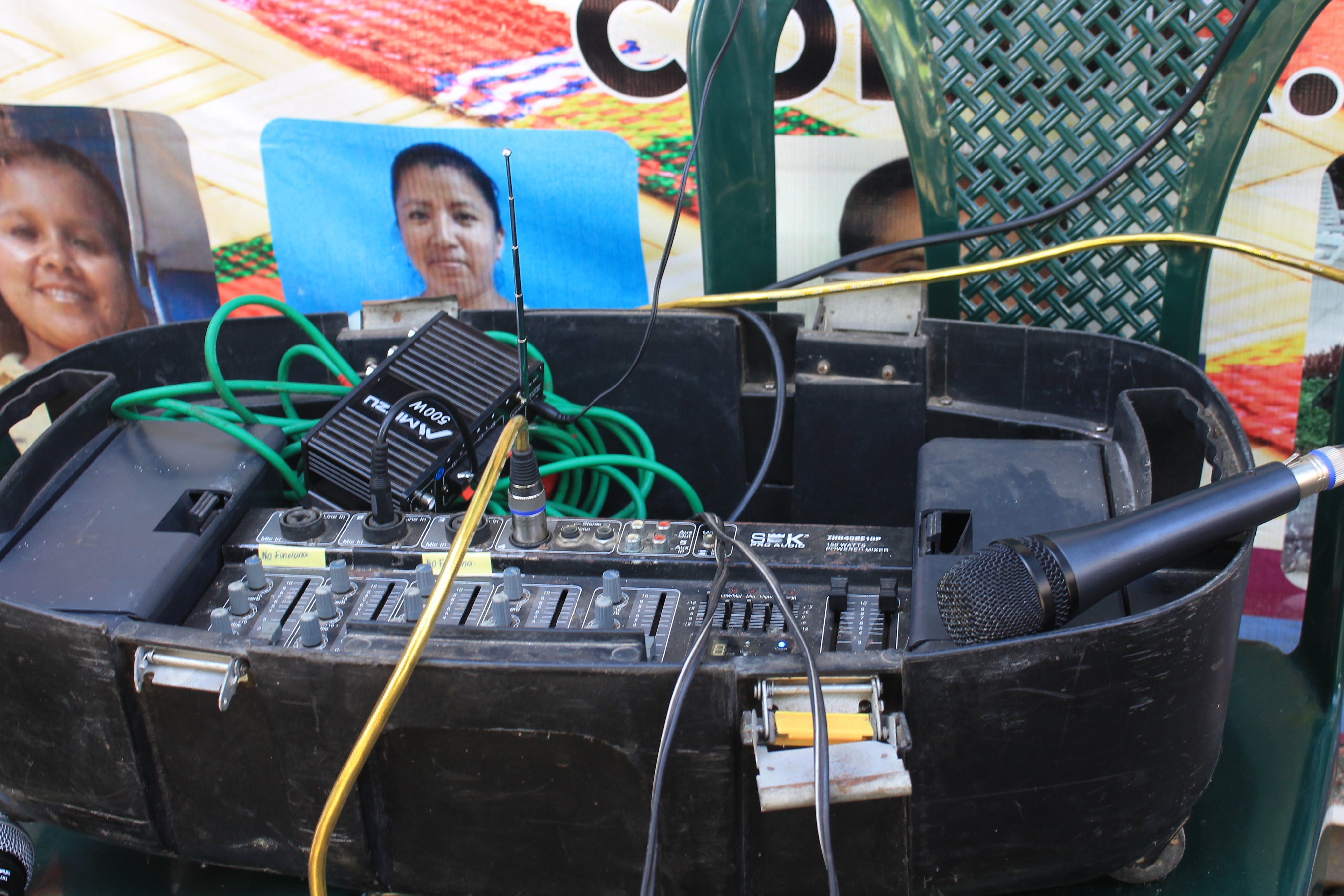
According to local news, Prensa Libre, in the morning of October 24, a contingent of 500 soldiers and 350 people arrived in El Estor while agents of the Public Ministry carried out searches and issued warrants. Since the declaration of the State of Siege, local journalists, activists, organizations have been harassed and their homes raided by the military. Many of those who have been targeted are people outspoken against the Fenix mine. This includes independent journalists who have covered opposition to the mine, the offices of the Defensoria Q’eqchi/ AEPDI who have helped bring a lawsuit against the mine to international courts, and Q’eqchi community radio station Radio Xyaab 'Tzuultaq'a. Radio Xyaab 'Tzuultaq'a is a Cultural Survival grant partner which has provided in-depth media coverage of the peaceful protests. The radio station has already been raided once before by national police during a similar state of siege enacted two years ago. At the time, the station director shared, “We fear that the harassment will continue against AEPDI due to our advocacy work with communities fighting for the protection of their territories and due to the demands they have made to definitively close the CGN-PRONICO mining company.”
In an official press release, the Chamber of Industry of Guatemala declared that the State of Siege was imposed because "There are individuals and armed groups in the area who have committed acts of violence against the security forces and the freedom of movement of the inhabitants, governance and security”, and that “measures taken by the governments were necessary to re-establish the order.” In a press release, Solway stated that their subsidiary GCN is bound by rulings from Guatemalan courts and that the Ministry of Energy and Mines (MEM) is responsible for carrying out consultations, which they say have been taking place since September 28, 2021, in full compliance with the provisions of the Court.
However, the September 28 consultation violated international standards because it excluded the community’s self-determined governance structure, the Ancestral Council of Q’eqchi Peoples. Instead, the MEM has been carrying out consultation with a newly appointed third party, named the “Council of Maya Q’eqchi Indigenous Communities” who, during the June court case, submitted an Amicus Curiae brief in favor of the Fenix mining project. On June 30, 2021, the Ancestral Council of Q'eqchi' Peoples sent a message to the Guatemalan government asking that it respect the self-determination of Q'eqchi' Peoples to elect their own legitimate authorities named through general assembly to represent in the pre-consultation and consultation processes, but they were ignored.
A History of Violence
The Fenix mine is Guatemala’s only active metal mine, and extracts 120,000 tons of nickel per month, making it the biggest in Central America. It is located on the shores of the Izabal lake, Guatemala’s largest, a crucially important resource for fishing and fresh water for the local communities, but which has been contaminated over the years. Nickel from Guatemala is highly valued. Solway describes the mineral they extract from the Fenix mining project (CGN) as one of the 10 richest and purest in the world, and as a deposit of great potential in size and quality it represents "an important milestone."
The Fenix project has been mired in violent conflict since its installation on Indigenous land without consent in 1960 during Guatemala’s civil war. Between 2005-2011 it was operated by Canadian company Hudbay Minerals/Skye Resources. During this time, Q’eqchi community members were violently evicted from their homes. A precedent-setting case is still pending in Canadian courts from an incident in 2007 in which uniformed mine personnel allegedly gang-raped at least 11 Q’eqchi women after burning their homes to evict them from their ancestral lands. Breaking new legal grounds to bring accountability to transnational companies operating abroad, the women are suing the Canadian company in Canadian courts for the actions of employees of their subsidiary. In 2009, HudBay security opened fire on Q’eqchi land defenders protesting their eviction, and one community leader, Adolfo Ich, was killed. Only in 2021 was the former security chief, Mynor Padilla, convicted for the murder. He served four years in prison during an appeals process and has now been released for time served. At the time of the incident, HudBay denied responsibility, claiming members of his own community attacked him with a machete. One Q’eqchi man, Germán Chub, who survived the attacks but has remained paralyzed from the waist down from bullet wounds, has remained a vocal opponent of the mine’s operation. His home was raided by the military on October 27, 2021.
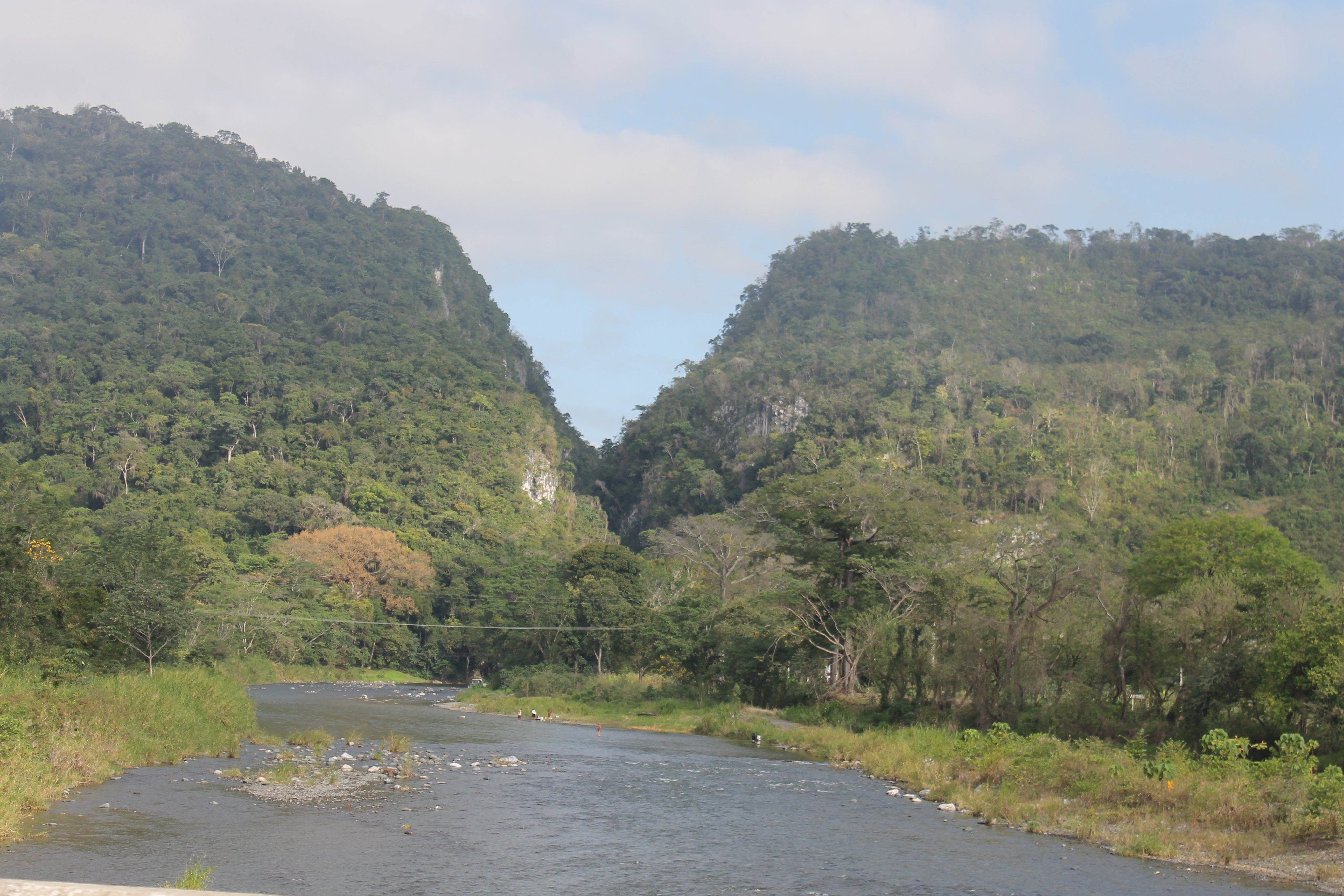
Contamination of Waterways
In 2017, an Indigenous fisherman’s guild in El Estor denounced the Fenix Mine for contamination of Lake Izabal. That year, a giant red stain appeared on the surface of the lake emanating from where the mine ejects water. Solway denies that the Fenix mine is a major factor in the lake’s contamination, placing the blame on local residents. Although local authorities took samples to do lab testing of the water quality, data of the results were never released publicly. Meanwhile, according to the Fisherman’s Guild, independent testing in Germany and Mexico determined the water to have heavy metal contamination. On 27 May 2017, during peaceful demonstrations calling on authorities to resolve contamination in the lake, a member of the Fisherman’s Guild, Carlos Maaz Coc, was killed. During the protest, Q’eqchi journalist Carlos Ernesto Choc Chub, of Prensa Comunitaria, recorded video of bullets fired at Choc by agents of the National Police. Choc Chub subsequently received death threats and six criminal charges were brought against him, later dismissed as false. On October 27, during the State of Siege, Choc Chub’s home was also raided by police.
Violations of Domestic and International Law
In addition to the 2021 decision from Guatemala’s Constitutional Court requiring consultation to be carried out, in February 2011, the Court also ruled in favor of a local Indigenous community, the Q’eqchi Peoples of Agua Caliente, whose ancestral land holds the highest concentration of nickel reserves in the area. The case was brought by Rodrigo Tot, president of the Agua Caliente community in El Estor, who later went on to win the Goldman Environmental Prize. The court ruled in their favor, recognizing their collective property rights and questioning the legality of the mining permits and activities on their traditional lands. Later in 2011, when that decision failed to be implemented, with the help of the legal defense organization the Defensoria Q’eqchi and the Indian Law Resource Center, the community filed a case with the Inter-American Commission on Human Rights. In 2020, the Commission sided with the community and referred the case to the Inter-American Court of Human Rights, where it is currently pending.
A Growing Dependance on Transitional Minerals and Its Impacts on Indigenous Communities
In 2014, ownership of the mine was transferred to the Solway Group. At that time, the Russian Foreign Ministry announced this nickel project in Guatemala as a Russian investment project. The company was later incorporated in Switzerland.
Global demand for nickel is skyrocketing alongside exponential growth in the electric vehicle sector as governments across the globe are aiming to meet goals to make a majority of new vehicles sold by 2030 be zero-emissions vehicles, including electric vehicles. Nickel is a key source material in the production of batteries used to power electric and hybrid vehicles.
Mining for battery minerals such as cobalt, lithium, and nickel has been shown to cause disproportionate harm to Indigenous Peoples. Metal mining is one of the world’s dirtiest industries, responsible for at least 10 percent of anthropogenic greenhouse gas emissions. Like at the Fenix Mine in El Estor, globally, mining is linked to environmental destruction, freshwater contamination and depletion, human rights abuses, forced displacement, loss of livelihood, violent conflict, unsafe working conditions, and illicit financial flows in many parts of the world. It increasingly poses threats to ocean health through the risky practice of mine waste dumping and deep-sea mining.
In Papua New Guinea, the Ramu Nickel Mine has forcibly displaced Indigenous Kurumbukari Peoples from their ancestral homeland. For over a decade, the plant has been routinely dumping millions of tons of toxic waste into Basamuk Bay, which is regularly fished by 30,000 people to support their livelihoods, families, and local economy. The Bay feeds into the Coral Triangle biodiversity hotspot, relied on by half a million people in the region, and has the highest diversity of marine species in the world.
In Russia, the largest nickel producer in the world, Nornickel, hosts smelting sites on the Indigenous lands in the Russian Arctic. Nornickel operates on and has caused extensive environmental damage to the territories of the Sámi, Nentsy, Nganasan, Entsy, Dolgan, and Evenki communities who have suffered from Nornickel’s negative impacts on their herding, hunting, fishing, and overall economic and subsistence activities. On May 29, 2020, a Nornickel power plant failed and released 21,000 tons of diesel oil into the local rivers. In 2016, a suspected break in a Norilsk Nickel slurry pipe caused the Daldykan river to turn bright red, just as Lake Izabal did at the site of the Fenix Mine in 2017. Nornickel claimed it was due to heavy rains.
Photo: Daldykan River in 2016, photo on Facebook.
Indigenous Communities Are Joining Together to Demand a Just Transition
Indigenous Peoples globally are working to ensure that a transition to a green economy does so while respecting Indigenous lands, livelihoods, and basic human rights. In 2020, after Elon Musk, CEO of Tesla, put out a call on Twitter announcing his search for more nickel to expand production of Tesla electric cars, Indigenous communities in the Arctic joined together with dozens of other organizations to send an open letter to Musk urging Tesla not to purchase from Nornickel until they demonstrate a real commitment to consultation with affected Indigenous Peoples.
On October 28, 2021, Cultural Survival along with 140 other organizations issued a joint statement in advance of the climate negotiations at the United Nations Framework Convention on Climate Change (UNFCCC) Conference of Parties (COP 26) in Glasgow, Scotland, expressing concern about the impacts of extracting minerals, such as lithium, cobalt, nickel, and copper for renewable energy technologies on communities, workers and ecosystems around the world. The letter calls on climate negotiators at the COP26 to make a binding commitment to source transition minerals responsibly.
The letter states, “Our transition to renewable energy sources must be just and equitable and accompanied by a simultaneous transformation away from irresponsible mining.” It calls for the centering of the human rights of Indigenous and frontline communities and workers at mining, recycling, reclamation, manufacturing, and renewable energy projects. It also calls for the prioritizing of low-impact circular economy solutions that reduce the overall demand for primary metals, and for ensuring responsible minerals sourcing at existing mining operations. “A truly clean, just and equitable energy economy will require not just a transition to cleaner sources of energy, but transformation on an individual and collective level.” Read the declaration here.
